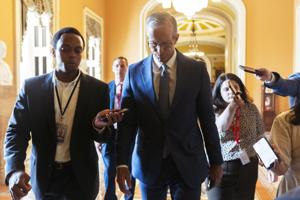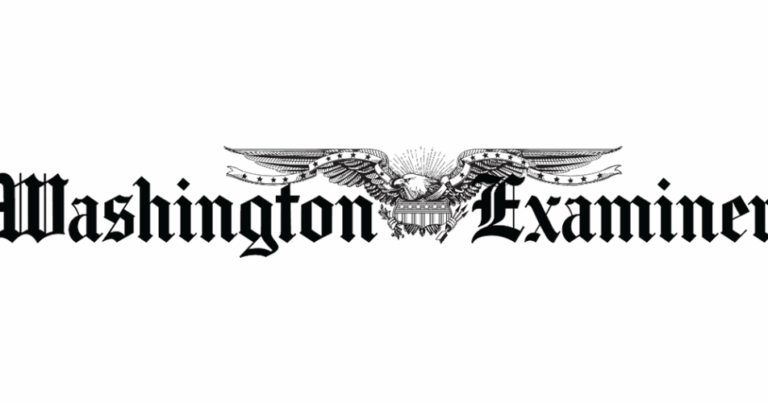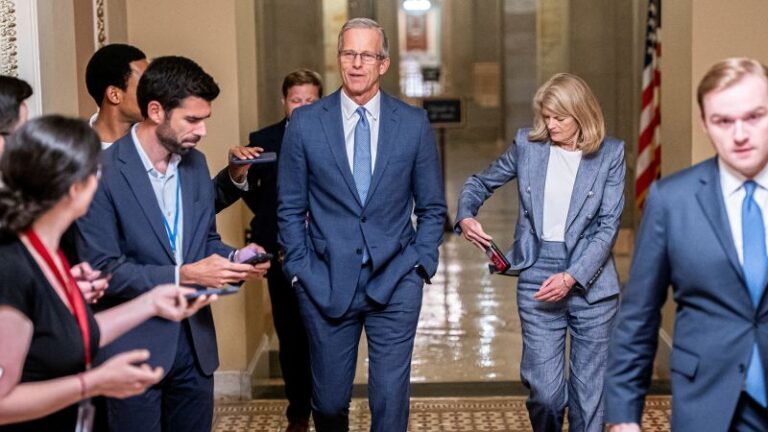WASHINGTON (AP) — In a dramatic overnight session that extended into Tuesday, Senate Republicans are grappling with internal divisions as they attempt to rally support for President Donald Trump’s ambitious bill. The proposed legislation, which combines significant tax breaks with spending cuts, faces stiff opposition, primarily from Democrats, who are pushing for amendments to derail the package.
The session, described by insiders as tense and uncertain, has yet to reach a clear resolution. Senate Majority Leader John Thune of South Dakota is at the forefront of efforts to broker a deal. He is navigating between party members concerned about the bill’s potential impact on Medicaid and the conservative faction demanding deeper cuts to address the burgeoning deficit.
Challenges in Reaching Consensus
The bill’s journey through the Senate is fraught with challenges. At its core, the legislation aims to deliver on long-standing Republican promises of tax reform and fiscal responsibility. However, the proposed cuts to Medicaid have sparked fears that millions could lose access to essential healthcare services, a point of contention for some moderate Republicans.
Meanwhile, the conservative wing of the party is pressing for even more aggressive spending cuts, arguing that the current proposal does not go far enough in curbing the national deficit. The dichotomy within the party highlights the complex balancing act facing Republican leaders as they attempt to unify their ranks.
Democratic Opposition and Proposed Amendments
Democrats are staunchly opposed to the bill, arguing that it disproportionately favors the wealthy and corporations at the expense of middle and lower-income Americans. They have introduced a series of amendments aimed at mitigating the bill’s impact on social programs and ensuring more equitable distribution of tax benefits.
Senate Minority Leader Chuck Schumer has been vocal in his criticism, stating,
“This bill is a giveaway to the rich and a blow to the working families of America.”
Schumer’s sentiments echo a broader Democratic strategy to frame the bill as an attack on social safety nets.
Historical Context and Expert Opinions
The current legislative battle is reminiscent of past tax reform efforts, such as the Reagan-era cuts in the 1980s, which similarly faced partisan divides and concerns over fiscal impacts. Economic experts are divided on the potential outcomes of the bill. Some argue that the tax cuts could spur economic growth, while others warn of increased inequality and fiscal instability.
According to Dr. Lisa Grant, an economist at Georgetown University,
“While tax cuts can stimulate economic activity, the scale and scope of these cuts, coupled with spending reductions, could exacerbate existing inequalities and strain public services.”
The Road Ahead
As the Senate session continues, the path forward remains uncertain. Republican leaders are under pressure to secure a legislative victory, yet the divisions within their ranks pose significant hurdles. The outcome of this legislative push could have far-reaching implications for the party’s agenda and the nation’s fiscal health.
In the coming days, all eyes will be on the Senate as it attempts to navigate this complex legislative landscape. The stakes are high, and the decisions made in these critical hours could shape the political and economic trajectory of the United States for years to come.






















